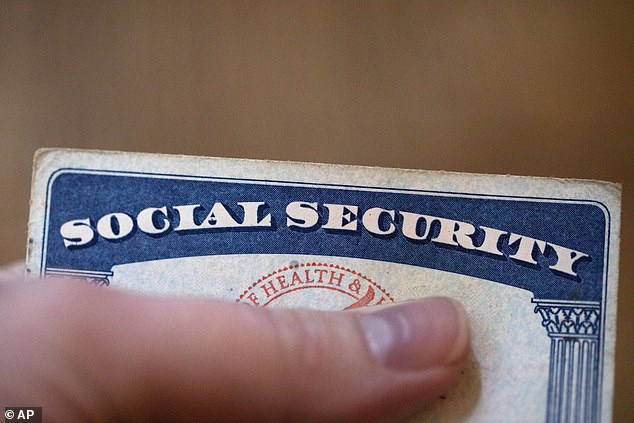Hackers may have stolen EVERY American's Social Security numbers in 'five-alarm wake-up call'
A vicious gang of hackers might have stolen every American's Social Security number in a massive theft of personal information from a large data broker, which experts are calling 'a five-alarm wake-up call.'
Following the online heist, which took place four months ago, one of the hackers reportedly released most of the sensitive data on the dark web for free.
Now that this sensitive information - including Social Security numbers - has been disseminated, it is possible it will give rise to rampant identity theft, fraud, and various other crimes.
'If this in fact is pretty much the whole dossier on all of us, it certainly is much more concerning [than previous breaches],' Teresa Murray, a cybersecurity expert, told Yahoo news.

A vicious gang of hackers might have stolen every American's Social Security number in a massive theft of personal information from a large data broker

Now that this sensitive information- including Social Security numbers- has been disseminated, it is possible it will give rise to rampant identity theft, fraud, and various other crimes
'If people weren’t taking precautions in the past, which they should have been doing, this should be a five-alarm wake-up call for them,' Murray continued.
In April, a notorious gang of hackers known as the USDoD took credit for the theft of sensitive personal records of 2.9 billion people from National Public Data, which often provides personal information to employers, staffing agencies, and private investigators.
In a forum for hackers, the USDoD offered to sell the valuable data, which encompassed records of people from the United States, the United Kingdom, and Canada.
According to a post on X.com by a cybersecurity expert, the group claimed that they were selling the 4 TB database for $3.5 million.

In April, a notorious gang of hackers known as the USDoD took credit for the theft of sensitive personal records of 2.9 billion people from National Public Data

The hacker went on to claim that the database contained about 2.7 billion records, which came furnished with a person's full name, date of birth, address, and Social Security number
But last week, a putative member of the hacking gang, going by the name Felice, told the forum that they were offering 'the full NPD database.'
The hacker went on to claim that the database contained about 2.7 billion records, which came furnished with a person's full name, date of birth, and address.
It also contained Social Security numbers, phone numbers, and alternative birth dates and names.
News outlets centered around cybersecurity have since viewed sections of the data Felice made available.
According to experts, the data appeared to be genuine.
According to Yahoo, National Public Data has been informing people who have contacted them regarding the data breach that they 'are investigating these issues.'
The data broker also reportedly stated that they have 'purged the entire database, as a whole, of any and all entries, essentially opting everyone out.'

The hacker went on to claim that the database contained about 2.7 billion records, which came furnished with a person's full name, date of birth, and address
By doing so, National Public Data has deleted 'non-public personal information' about people, although they might have to retain certain documents to 'comply with legal obligations.'
Even though email addresses were noticeably absent from the hackers' database, ill-intentioned people could still do 'all kinds of things,' according to Murray.
With the information they already have in hand, criminals could attempt to hijack someone's bank account.
'For someone who's really suave at it, the possibilities are endless,' Murray added.
























































































































































































































































































































































































